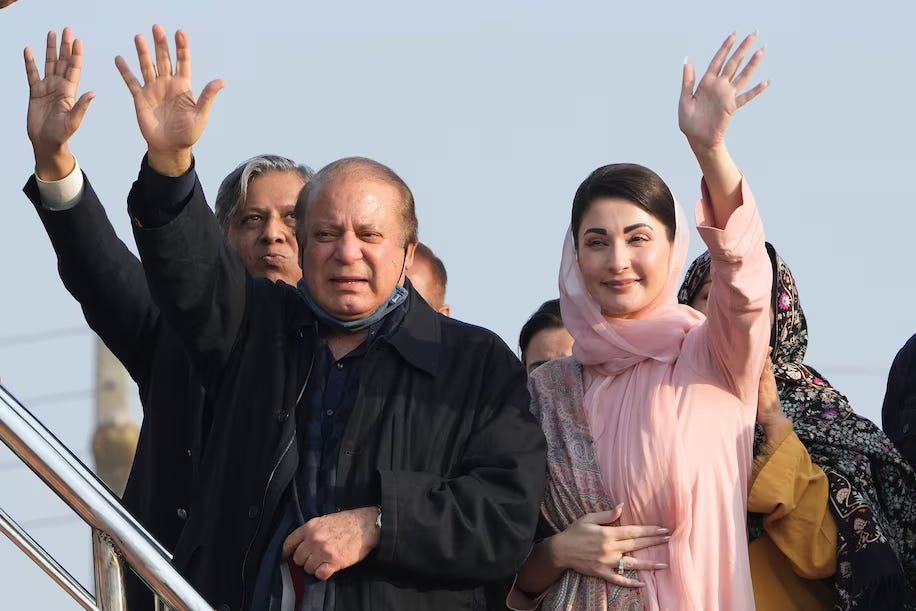Imran Khan's Message from Inside the Jail
Special Message from Imran Khan, Founder Chairman of Pakistan Tehreek-e-Insaf (PTI), from Adiala Jail.
Imran Khan's Message from Adiala Jail
The official Twitter site of Pakistan Tehreek-e-Insaf (PTI), the political party founded by former Prime Minister of Pakistan and renowned cricketer Imran Khan, published his message on 25th June in Urdu, sent from inside Adiala Jail. This was his first message after the previous one sent from the same jail in the first week of April. Imran Khan continues to be in prison on one charge or another since the national elections, which are widely alleged to have been rigged by Nawaz Sharif and his brother Shehbaz Sharif, in collusion with the Pakistani establishment. We present the English paraphrase of the same, without any accompanying analysis, except implications for India, and refer our readers to our previous articles linked above, for greater insights and details.
Commitment to Eradicating Terrorism
In his fairly long message, Imran Khan commenced by emphasising that the eradication of terrorism from Pakistan and the establishment of law and order had always been central policies of Pakistan Tehreek-e-Insaf (PTI). He stated that during their government, they achieved a significant reduction in terrorism by strengthening the police and the Counter-Terrorism Department (CTD) in Khyber Pakhtunkhwa. This, he noted, led to a marked decrease in terrorism in the province and subsequently across the entire country.
Efforts for Regional Peace
Imran Khan explained that to establish peace in the region, they had engaged in dialogue with the anti-Pakistani Ashraf Ghani government in Afghanistan, inviting them to Pakistan and visiting Afghanistan himself. He mentioned that following the US withdrawal, there was a serious threat of civil war in Afghanistan, which they managed with great tact. After the formation of the new government in Afghanistan, then DG ISI General Faiz Hameed played a pivotal role in establishing relations with the new administration. Considering the regional situation, Khan's government decided not to replace the DG ISI, and he instructed General Bajwa accordingly.
However, Khan revealed that General Bajwa was replaced, and the reasons for this decision would be divulged later. There was evidently a deal between General Bajwa and Nawaz Sharif concerning the extension of General Bajwa's tenure. Khan pointed out that this incident demonstrated how General Bajwa inflicted immense damage on the country for his personal gain, and that the ISI, which was meant to safeguard the country from terrorism, was diverted to crush Tehreek-e-Insaaf.
Critique of Current Government
Imran Khan criticised the foreign minister of the PDM government for travelling extensively around the world but not visiting Afghanistan, indicating a lack of concern for Pakistan’s peace, the lives and property of the people, and the security institutions. He claimed that even today, the current government lacks a clear strategy to combat terrorism, causing the country to suffer once again.
Upholding National Interests
Khan asserted that Pakistan Tehreek-e-Insaaf prioritised national interests by depoliticising state institutions. Despite this, he mentioned that domestic and foreign critics invented the term "hybrid system" to criticise them. Khan observed that today, apart from a small group of conscientious individuals and writers, their critics, who previously mocked them for the so-called hybrid system, are now openly highlighting the dominance of the worst kind of personal autocracy and dictatorship in the country.
The Future of Pakistan
Khan expressed his belief that the future of Pakistan hinges on respecting the people's mandate, upholding the rule of law, and ensuring political stability. He argued that terrorism cannot be countered through sheer fascism or militancy against their own people, nor can Pakistan achieve stability this way. Khan concluded that attempts to make decisions against the will of the people and to impose them by force have always resulted in negative outcomes.
Imran Khan's Legal Battles: A Complex Saga
Former Pakistan Prime Minister Imran Khan remains imprisoned on charges linked to leaking state secrets and an allegedly un-Islamic marriage to his third wife, Bushra Bibi. In February 2024, Khan was sentenced to 10 years in prison for revealing official secrets in the "cypher case," involving a confidential diplomatic cable. However, despite his imprisonment, Khan retains significant grassroots support and political influence.
Recently, the Islamabad High Court acquitted Khan in the cypher case on June 5, 2024, overturning his conviction. Additionally, he was granted bail in a separate land deal case. Nonetheless, Khan remains jailed over his marriage conviction, which has drawn criticism for its focus on personal matters. His party and supporters continue to rally behind him, alleging that the charges are politically motivated.

India’s Cautious Engagement and Vigilance
In light of Imran Khan's message and the fact that Pakistan's Prime Minister sent a congratulatory message to PM Modi on his re-election for a third successive term, despite not being invited like other SAARC neighbours, it is essential to consider the path forward for India-Pakistan relations, with cautious optimism.
While the outcome of Pakistan's election was clearly rigged, the Indian establishment must maintain peaceful coexistence with its cantankerous neighbour, particularly on the contentious issue of Jammu & Kashmir. Under the dynamic leadership of PM Modi, India remains unwavering in its stance that the entirety of J&K, including PoK, is an integral part of the nation. Amidst growing internal dissent in Pakistan, notably in Balochistan, India's strategy should focus on fostering stability and peace within South Asia.
However, India must approach its dealings with Pakistan's military establishment with caution, recalling the lessons from the Kargil conflict, even as it pursues peace initiatives like the Lahore Bus diplomacy under PM Vajpayee. Adhering to the principle of "Trust but verify," India should balance vigilance with diplomatic engagement, ensuring a nuanced approach to its relations. This careful strategy will help India navigate the complexities of its relationship with Pakistan, aiming for regional stability and long-term peace, and cricket can be just one of the planks of engagement.
If you believe this article would interest someone you know, please feel free to share it anonymously (for us), using any platform that you prefer.



